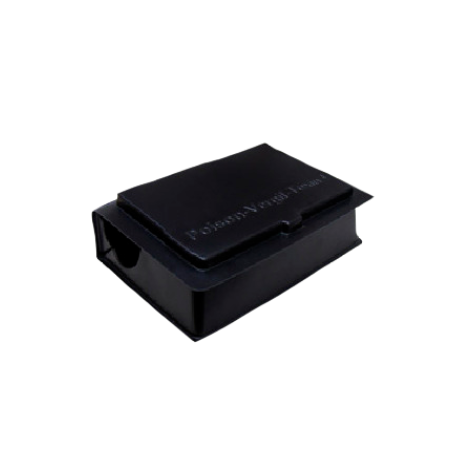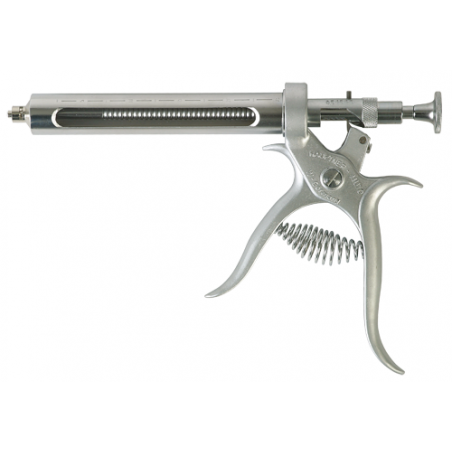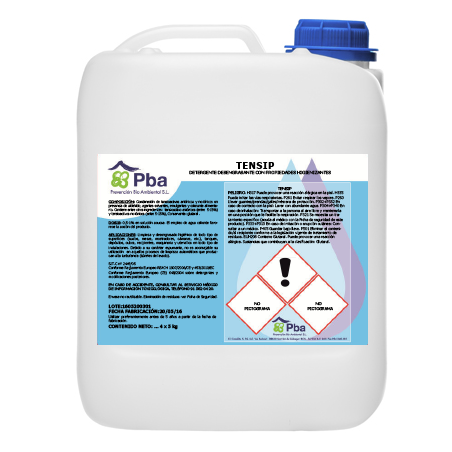PCV2 is a very common infection of pigs affecting farms all over the world. When this PCV2 infection rises to a high level of virus in the blood and tissues, the damaging effects of the PCV2 on lymph nodes and other tissues develop fully, with the well-known clinical signs of wasting and pneumonia occurring in nursery and grower pigs. The main factors that cause PCV2 infections to develop to a high level in some pigs are now considered to be the presence of co-infections (such as the common pig viruses, PRRS or parvovirus) and the pigs being of a susceptible breed, such as Landrace.

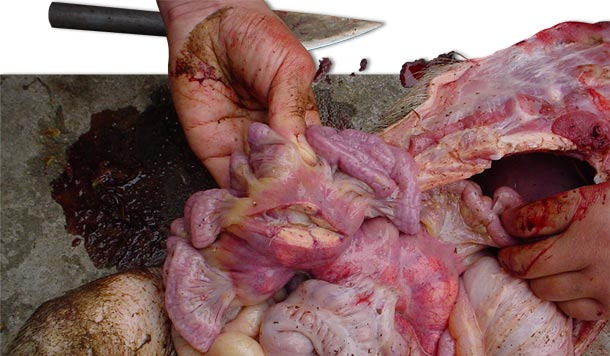
Figure 1: Autopsy of sick pigs indicates enlarged lymph nodes, such as inguinal and mesenteric lymph nodes.
The development of effective vaccines, has led to a dramatic reduction in the incidence of these clinical problems of pneumonia and wasting disease. All pig farmers are urged to add PCV2 vaccines to their vaccine list, as they are highly beneficial to the profitability of pig farming, when applied to the pigs in a proper manner.
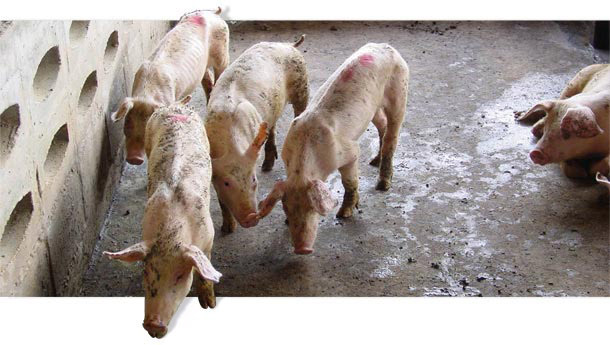
Figure 2: Sick and runt nursery pigs with very poor growth rates.
The occurrence of PCV disease due to the development of high levels of PCV2 and clinical signs in pigs is therefore nowadays usually due to the farmer failing to use PCV2 vaccines in a proper manner. Currently, one effective form of vaccine is a sub-unit vaccine consisting of part of the PCV virus in a vaccine vector for injection, and another consists of the whole killed virus format.
The exact cause of the failure to vaccinate pigs properly for PCV can occur in various forms:
► Cost-cutting measures by the farmer are a common cause of vaccination failures. In many countries, there is a low or very low barrier to entry into the pig vaccine marketplace. This can lead to a wide supply of cheap vaccines that are all competing for pig farmer customers, based on sales involving the cheapest prices. The titre and potency of some of these vaccines may be poor. In some markets, inferior quality generic PCV vaccines, perhaps consisting of circovirus material of low titre may be available and used, with poor immunity results.
The first cause of PCV vaccine failure is therefore the purchase and use of generic vaccine of low quality and titre. Similarly, the farmer may be offered and use some international quality vaccine stock that has become labile or out-of-date, presumably at a cheaper price.
► Another common cause of vaccine failure occurs when the farmer purchases international quality vaccines at an appropriate price, but then attempts to save money by an intentional dilution of the purchased vaccine stock, so that the young piglets only receive a reduced dose. This is sometimes known as “cutting” the vaccine dosage. It obviously runs a great risk that the dose received by each pig is below that necessary to achieve a full immunity. Similarly the farmer may use only an intermittent vaccine programme to vaccinate the various batches of weanling piglets.
The overall risk of these cost-cutting measures is naturally that the farmer will lose twice. Some costs of vaccine purchase will still be there, but no immunity will develop among the vaccinated group, even though the farmer may still think that they are covered. The second costs will therefore then be the expenses of treating and disposal of sick pigs.
► Further causes of vaccination failures can occur when appropriate international quality vaccine is purchased, but where the farmer or the supply chain which supplied him has taken insufficient care of the vaccine quality.
A standard international quality label for a vaccine implies that the product is licensed in more than one country, and so it has been subjected to third party regulatory scrutiny away from the local area of development and manufacture. Additionally it also implies that it should work on groups of farm pigs on various sites and that the vaccine manufacture system is capable of outside scrutiny from international regulators.
► All vaccines must be stored in appropriate refrigeration conditions. Otherwise, the titre and potency of the vaccine will be reduced. It is important to establish that the PCV vaccine has been stored properly in the distributor and transport facility and that it is stored properly after arrival onto the farm. Many rural parts of the world with pig farm enterprises suffer problems with electricity supply, leading to refrigerators failing to work properly. This will lead to the vaccines warming up inside, to a point where any vaccine material becomes useless, when it may be injected into piglets. Also, farmers should always use well-maintained and sterilised equipment to inject piglet vaccines and vaccine failures can occur when vaccine is delivered to the pigs in broken or dirty equipment, leading to local infections and inflammation.
All vaccinations, including PCV vaccination are a prevention step, not a treatment. It therefore must be applied to young pigs some weeks before they are likely to get the actual wild virus. The most useful time for PCV vaccination for production pigs is around the time of weaning at 3 weeks-old. Sometimes a farmer who purchases weanling pigs that are not vaccinated and enter them into a grower phase operation, may delay vaccination of pigs until 4 weeks or older. This age of vaccination is older than recommended and may entail the vaccination phase occurring at the same time as infections with the wild field virus, leading to disease occurring before immunity starts.
It is also often recommended to vaccinate breeding pigs, at the time of pig selection for the breeding herd.





